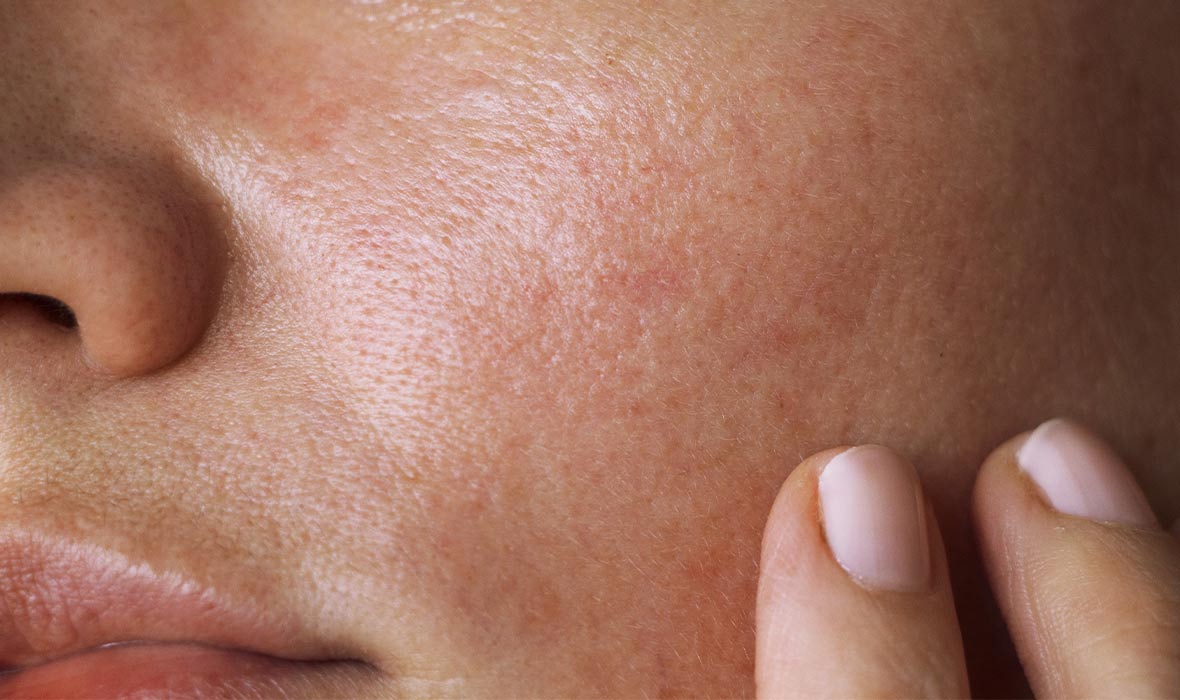Our bodies produce sebum, an oily substance that keeps our skin soft and healthy. Although everyone’s skin contains oil, some people produce more natural oils than others. This results in oil in skin, which is characterised by excessive shine and greasiness. The underlying causes of skin are usually age and genetics, both of which are beyond our control. Medication and hot weather, on the other hand, can aggravate our skin condition.
Furthermore, there are numerous bad habits that aggravate oily skin problems, such as wearing the wrong makeup or following a bad skincare routine. A well-planned skin rejuvenation routine will aid in the relief of oily skin symptoms. Also Read 5 Treatments to Improve Body Skin Texture
7 factors leading to oily skin
Age
The most common cause of oily skin is age. You may have noticed that young people, particularly teenagers, have greasy skin. This is because adolescents have overactive sebaceous glands, resulting in increased oil production. The good news is that you may outgrow oil in skin as you age because people produce less oil as they age.
Genetics
If you notice that your parents have oily skin, this is most likely why you inherited this genetic trait. Larger sebaceous glands are, unfortunately, inherited. Your parents may have inherited their skin from their grandparents, so this condition can run in families.
- Advertisement -
Medication
Although many pharmaceuticals have side effects, you may not have connected your medications to your oily skin. Many drugs, in fact, can cause excessive oil production. Oil is a common side effect of hormone replacement therapy and oral contraception. Other medications may cause dehydration, which causes your oil glands to overwork and results in oily skin. Also Read 5 Low-Cost Beauty Hacks to Keep Your Skin Looking Great
Enlarged Pores
Oil production is higher in larger pores. There are numerous causes of enlarged pores, including acne, weight fluctuations, and age. These pores can be reduced with a thorough facial treatment at a medical spa.
Washing Face Too Often
Washing your face once or twice a day is a good idea because it removes dead skin cells, dirt, and debris. However, washing your face too frequently is bad for your skin. Because washing removes oil from the skin, the body must produce more to replenish it. This quickly leads to an excess of oil production.
Scrub
Simply grab a towel and begin scrubbing your face with it after washing. Most people don’t think about how much force they’re using. When you scrub your face too vigorously, your glands may receive a signal that more oil is needed to moisturise your face. Instead, use a gentler cleansing method to promote healthy skin and normal oil production.
Use of Moisturizer
Moisturizers, contrary to popular belief, do not cause greasy skin. You should follow a moisturising skincare routine. Moisturizing on a regular basis tells your body that your skin is already hydrated and does not need to produce more oil. Sebum production will be reduced as a result. Also Read 5 Skin Glow Home Remedies Cause of Skin Dullness



